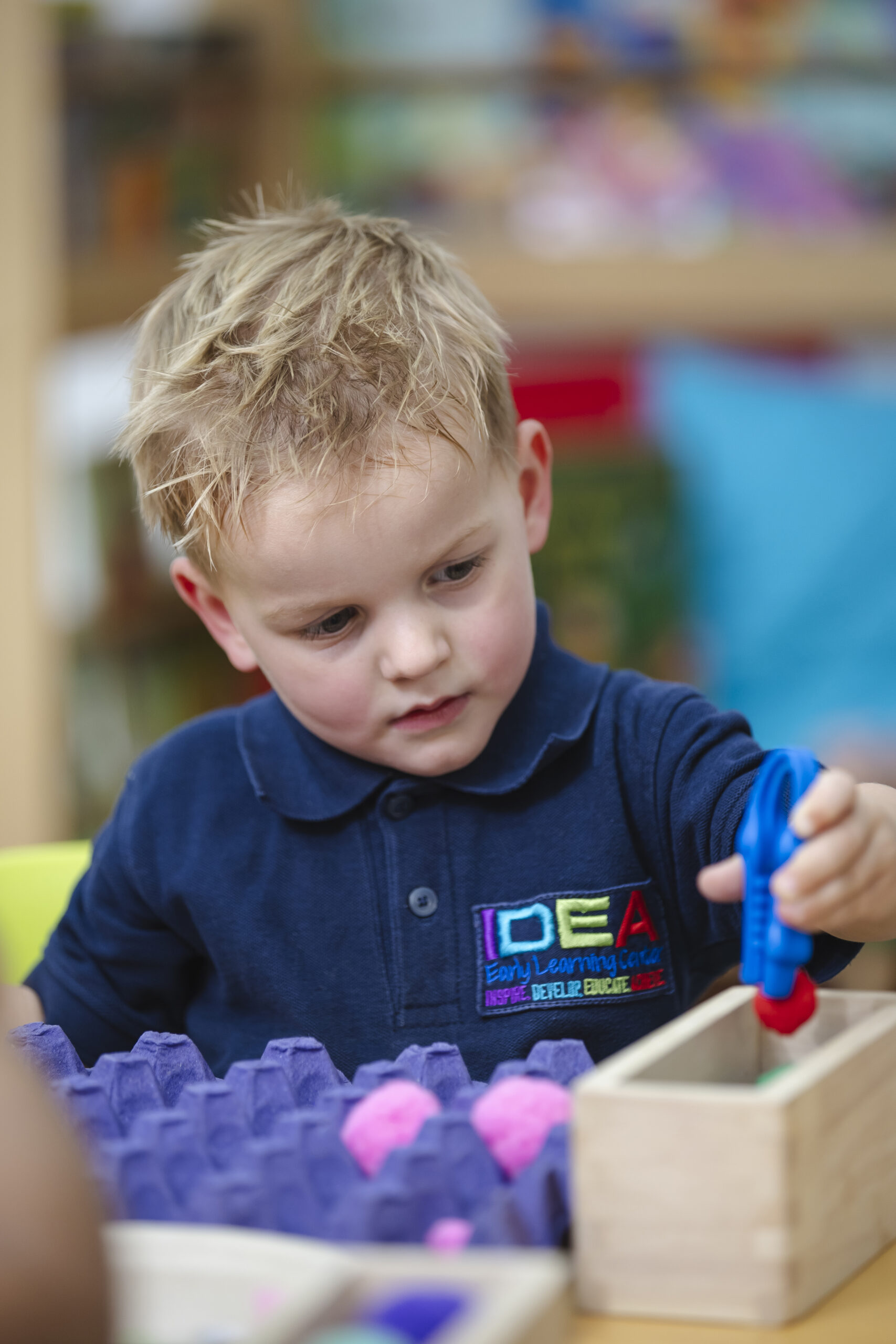At IDEA ELC we are interested to know that there is growing evidence to support the view that playing outdoors in the early years is not only enjoyable for young children, it is also essential to them developing healthily as well as learning about their world and developing appropriate attitudes to the environment.
A survey by the Children’s Play Council found that 80% of children prefer to play outdoors rather than indoors. When asked about their preference for different activities, 86% of children preferred outdoor learning activities.
As adults, both as parents and practitioners, we need to listen to the voice of children and ensure we do all we can to provide them with good quality outdoor experiences.
The best aspect about playing outdoors has to be that children can make as much mess as they like and it’s so easy to clean up. An outside area, even a balcony, is a perfect space for children to play with water or other natural materials, get messy and not get into trouble for it.
Many parents will know that some activities will draw their child in for hours, whether indoors or outdoors, messy or otherwise. Tina Bruce calls this kind of play as ‘wallowing’ a deep level involvement and concentration that involves a ‘free-flow’ of children’s ideas, thoughts, feelings, relationships and movements. She says this is where children reach their deepest level of concentration.
‘Free flow play deeply involves children so they wallow and reach their greatest levels of concentration…free flow play enables children to apply what they know, reflect on it, use it in different ways, experiment and explore with what they know and have learnt.’ (Bruce 2004).
Play in outdoor environments promotes this kind of free-flow play very well. Early years practitioners should provide rich opportunities for outdoor free-flow play and allow time to observe children, linking their observations to what parents say about their child’s learning.
Observing children playing outside enable practitioners to see new ways in which their ‘schemas’ or repeated patterns of behavior within which children assimilate experiences- are evident. Dynamic schemas- those that involve movement or action – are more observable outside because of the greater opportunity afforded by large spaces.
In playing and learning outdoors, children gain essential experiences that enhance their physical and cognitive development, promote their social skills and connect them to life. Their early experiences with their families set the way in which children will respond to the kinds of experiences they will receive in their setting. Good quality, positive and challenging experiences at IDEA ELC contribute to their happiness and wholeness as human beings.
Find out more by chatting to some of our parents on our facebook group: IDEA Early Learning Center’s PTFA.
